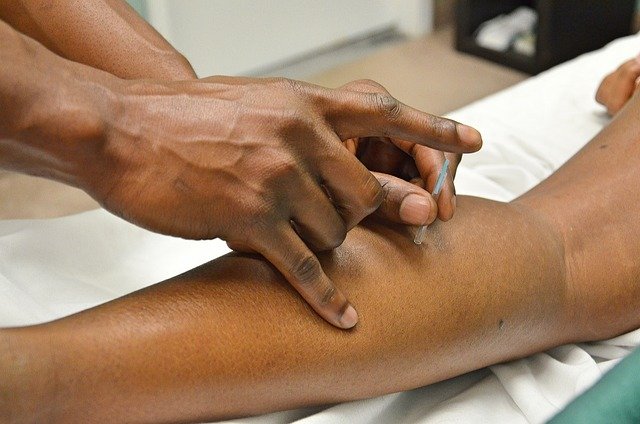Pneumonia Shots for Seniors: What You Need to Know in 2025
For seniors and those 75+, the right pneumonia (pneumococcal) vaccine can dramatically reduce the risk of serious lung infections. In 2025, understanding the vaccine options, timing, Medicare coverage, costs, and side effects helps you stay protected with clarity and confidence.

What Are the Main Pneumonia Vaccine Options for Seniors?
Two primary pneumonia vaccines are recommended for seniors in the United States. The pneumococcal conjugate vaccine (PCV15 or PCV20) and the pneumococcal polysaccharide vaccine (PPSV23) provide protection against different strains of Streptococcus pneumoniae, the bacteria responsible for most cases of bacterial pneumonia.
PCV20 covers 20 strains of pneumococcal bacteria and is often preferred as a single-dose option for many seniors. PCV15 covers 15 strains and may be given in combination with PPSV23, which protects against 23 strains. Healthcare providers typically recommend one of these vaccination strategies based on individual health history and risk factors.
The choice between these vaccines depends on factors such as previous vaccination history, underlying health conditions, and current CDC guidelines. Seniors who have never received pneumonia vaccination will typically receive either PCV20 alone or PCV15 followed by PPSV23.
How Often Should Seniors Receive Pneumonia Vaccination?
Unlike annual flu shots, pneumonia vaccines for seniors typically do not require yearly administration. Most seniors will receive pneumonia vaccination once, with some requiring a second dose depending on the specific vaccine combination used and individual risk factors.
For seniors receiving PCV20, this is generally a one-time vaccination that provides long-lasting protection. Those receiving PCV15 will typically get PPSV23 one year later to broaden their protection against additional pneumococcal strains.
Healthcare providers may recommend revaccination in specific circumstances, such as significant immunocompromising conditions or if previous vaccination occurred before age 65. The timing and frequency of pneumonia vaccination should always be discussed with healthcare professionals who can assess individual circumstances.
How Do Age-Specific Recommendations Apply to Senior Vaccination?
Current CDC recommendations specify that all adults 65 and older should receive pneumonia vaccination, regardless of overall health status. However, the specific vaccine choice and timing may vary based on vaccination history and risk factors.
Seniors who received pneumococcal vaccination before age 65 due to underlying health conditions may need additional vaccination after reaching 65. The interval between doses and specific vaccine types depends on which vaccines were previously administered and when.
Adults with certain high-risk conditions such as chronic heart or lung disease, diabetes, or compromised immune systems may have received earlier vaccination and require updated protection. Healthcare providers use detailed algorithms to determine the most appropriate vaccination strategy for each individual’s situation.
What Side Effects Should Seniors Expect from Pneumonia Shots?
Most seniors experience mild side effects from pneumonia vaccination, similar to other routine immunizations. Common reactions include soreness, redness, or swelling at the injection site, which typically resolves within a few days.
Some individuals may experience low-grade fever, fatigue, or muscle aches for one to two days following vaccination. These systemic reactions are generally mild and indicate the immune system is responding appropriately to the vaccine.
Serious adverse reactions to pneumonia vaccines are rare but can include severe allergic reactions. Seniors with known allergies to vaccine components should discuss alternatives with their healthcare providers. Most side effects are significantly milder than the potential complications of actual pneumonia infection.
Healthcare providers recommend monitoring the injection site and overall symptoms for a few days after vaccination, seeking medical attention if unusual or severe reactions occur.
| Vaccine Type | Coverage | Typical Cost | Administration Schedule |
|---|---|---|---|
| PCV20 | 20 pneumococcal strains | $200-300 | Single dose |
| PCV15 + PPSV23 | 23 pneumococcal strains | $150-250 per dose | Two doses, one year apart |
| PPSV23 alone | 23 pneumococcal strains | $100-150 | Single dose (limited situations) |
Prices, rates, or cost estimates mentioned in this article are based on the latest available information but may change over time. Independent research is advised before making financial decisions.
Medicare Part B typically covers pneumonia vaccination at 100% with no copayment when administered by participating providers. Most private insurance plans also cover pneumonia vaccines as preventive care under the Affordable Care Act. Seniors should verify coverage with their insurance providers and confirm that vaccination locations accept their specific plans.
Pneumonia vaccination represents a crucial preventive health measure for seniors, offering protection against serious respiratory illness and potential complications. Understanding the current vaccine options, proper timing, and what to expect can help seniors make informed decisions about their healthcare. While vaccination schedules and recommendations may evolve, the fundamental importance of pneumonia prevention for older adults remains constant. Working closely with healthcare providers ensures that each senior receives the most appropriate vaccination strategy for their individual circumstances and health profile.
This article is for informational purposes only and should not be considered medical advice. Please consult a qualified healthcare professional for personalized guidance and treatment.




